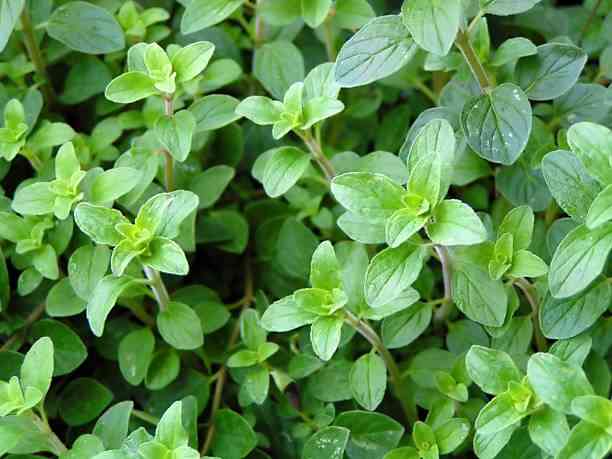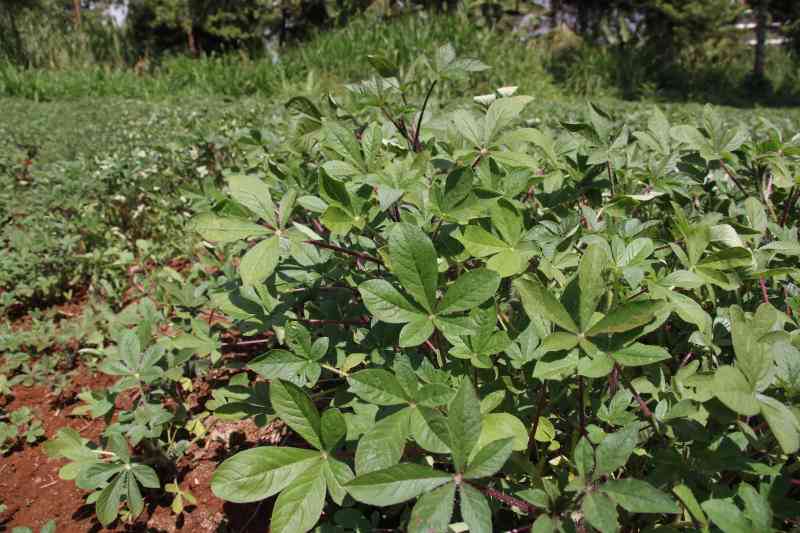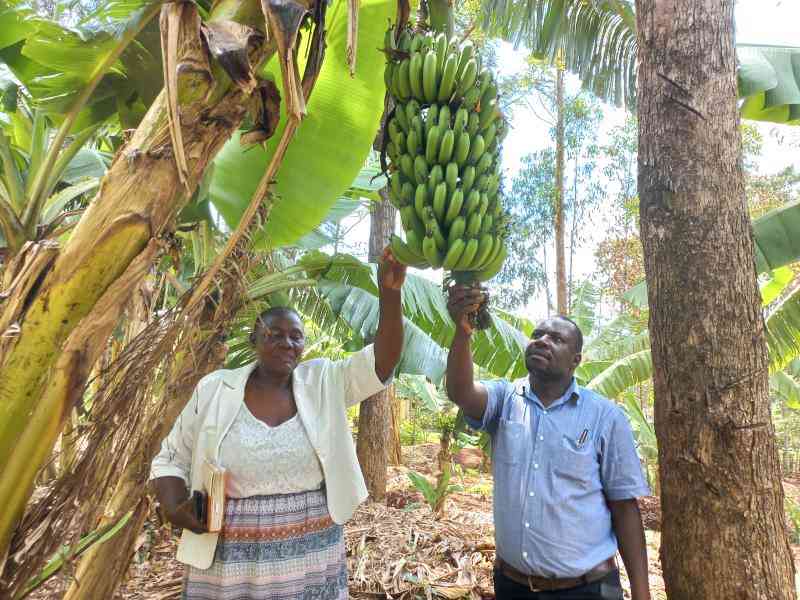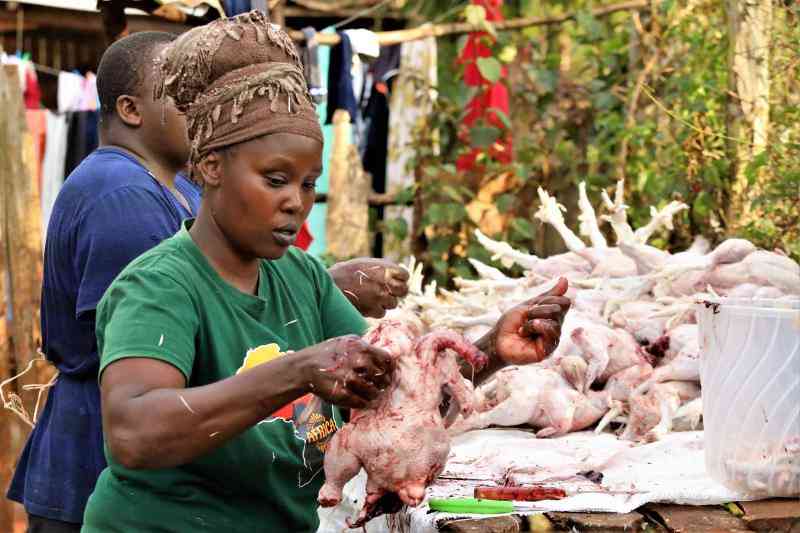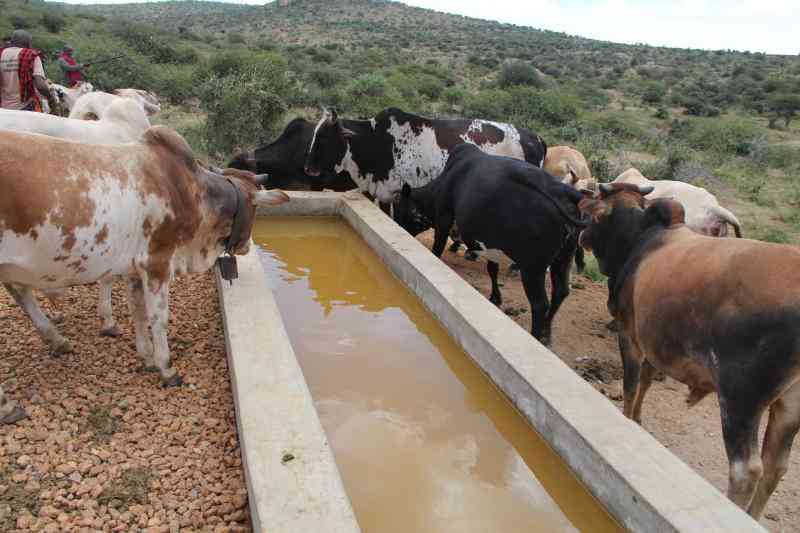An agency's experts in extension communications have taken to the "air waves" and launched a radio campaign to help farmers fight against the papaya mealybug pest.
Stephanie Gakuo, a Development Communications specialist at CABI’s centre in Nairobi, teamed up with the Agriculture ministry and its Head of Horticulture Joshua Oluyali to launch the campaign on Radio Kaya.
Representatives from the National Museums of Kenya and the Kenya Plant Health Inspectorate Services (KEPo took part in the launch.
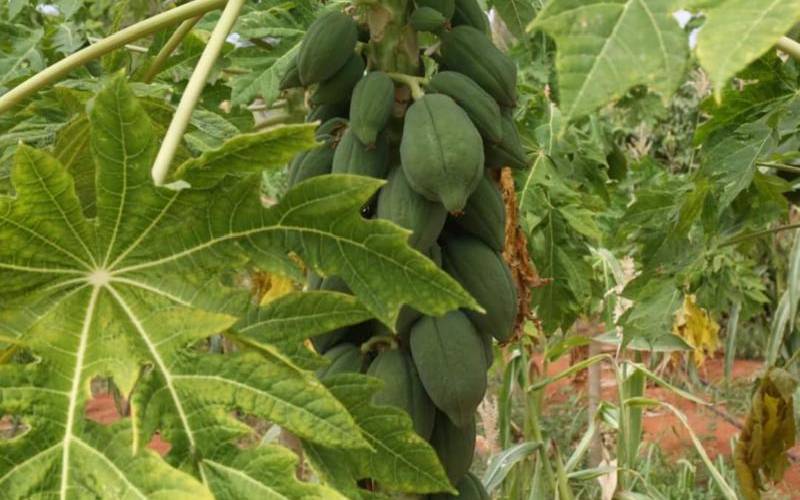
The campaign, which is funded under the Darwin Initiative and CABI’s Plantwise programme, aims to educate farmers on practical ways to manage the papaya mealybug pest.
They also aim to mitigate losses in three coastal counties where the major commercial papaya farms are located – Kwale, Kilifi and Mombasa.
“Papaya is rated as Kenya’s 5th most important fruit crop and is crucial for both the local and export market," Gakuo said.
The Papaya mealybug is considered a key threat to the country’s papaya production – estimated in 2016 at 107,591 tonnes and which earned farmers Sh2.2 billion ($18.4 million) according to the Horticulture Crops Development Authority (HCDA) validated report 2015-16.
“The pest is found in almost half of the country sustained by the climate and year-round availability of suitable host plants that provide favourable conditions for the pest.”
She said the management of the pest, however, has proven difficult for both commercial and small-scale farmers.
Studies by the Kenya Agricultural and Livestock Research Organisation (KALRO), Kenya Forestry Research Institute (KEFRI) and CABI, between 2016 and 2019, reported a mean yield loss ranging from 56.7% to 91% for coastal counties.
Kwale County lost over 60% of its papaya crop between 2017-18, with production dropping from 20,005 to 6,248 tonnes.
Household income loss attributed to the pest is estimated at Sh23,000 ($212). Small scale farmers desperate for solutions have resorted to undetermined local remedies and indiscriminate chemical use to manage the pest.
Gakuo added, “The radio campaign aims to strengthen ongoing localised awareness and appropriate pest control and management practices efforts by the government executed through the extension network and farmer training.”
Other notable government interventions include the certification of suppliers of planting materials, capacity building for extension workers and the implementation of phytosanitary controls to stem transmission through the movement of contaminated vegetative material.
The pest, native to Central America, is thought to have entered the country through cross border trade, CABI said in a statement.
The radio campaign also aims to create awareness about transmission of the mealybug alongside its management using cultural, mechanical and biological measures.
Back in August, CABI shared their expertise on the papaya mealybug as part of a new multi-agency technical brief addressing the description, identification and sustainable management of the pest in Kenya.
The brief, which contains the latest agreed advice for papaya mealybug management, is the source document for the radio campaign. It will also be used to support the development of a range of information materials for extension workers, agro-dealers and farmers who grapple with the pest that can devastate whole crops if left to take hold.
Meanwhile, a team of CABI researchers are currently collaborating with institutions working together under the Darwin Initiative, including KALRO, KEPHIS and the University of Nairobi to implement a classical biocontrol programme.
CABI determined through research in 2019 that the papaya mealybug lacks effective natural enemies in the country. This led to an application for authorisation seeking approval for the introduction of A. papayae to enable the pest’s sustainable control.
This is part of work conducted under the Darwin Initiative funded project and CABI’s Plantwise programme – funded by the International Fund for Agricultural Development (IFAD).
Want to get latest farming tips and videos?
Join Us
 The Standard Group Plc is a multi-media organization
with investments in media platforms spanning newspaper print operations,
television, radio broadcasting, digital and online services. The Standard Group
is recognized as a leading multi-media house in Kenya with a key influence in
matters of national and international interest.
The Standard Group Plc is a multi-media organization
with investments in media platforms spanning newspaper print operations,
television, radio broadcasting, digital and online services. The Standard Group
is recognized as a leading multi-media house in Kenya with a key influence in
matters of national and international interest.
 The Standard Group Plc is a multi-media organization
with investments in media platforms spanning newspaper print operations,
television, radio broadcasting, digital and online services. The Standard Group
is recognized as a leading multi-media house in Kenya with a key influence in
matters of national and international interest.
The Standard Group Plc is a multi-media organization
with investments in media platforms spanning newspaper print operations,
television, radio broadcasting, digital and online services. The Standard Group
is recognized as a leading multi-media house in Kenya with a key influence in
matters of national and international interest.


